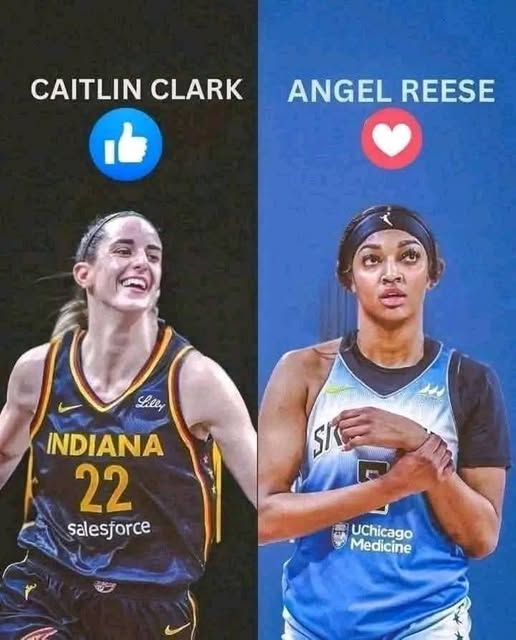In an era where college athletics are undergoing seismic transformations, few figures have had the singular cultural and competitive impact that Caitlin Clark and Angel Reese bring to the hardwood. Together, they have not only shaped one of the most compelling rivalries in recent memory but also fueled a historic surge in the popularity of women’s basketball. From buzzer-beating heroics to viral moments of defiance, Clark and Reese have become icons, trailblazers, and game-changers in every sense of the word.
The Rise of Caitlin Clark
Caitlin Clark’s journey from West Des Moines, Iowa, to national prominence is the stuff of basketball lore. Known for her jaw-dropping range, high-IQ court vision, and fierce competitiveness, Clark emerged as a phenom early in her career at the University of Iowa. She consistently put up video game numbers — triple-doubles, 40-point performances, and dagger threes that sent arenas into a frenzy.
Her ability to drain logo threes with unshakeable confidence drew comparisons to Steph Curry, but Clark was forging her own path. Her sophomore and junior seasons were record-setting, culminating in historic runs to the Final Four and eventually the NCAA Championship game. With each game, Clark drew more attention, packing arenas and drawing massive TV ratings.
What truly sets Clark apart, however, is her all-around impact. She isn’t just a scorer; she’s a playmaker and a leader. Her competitive fire, often on full display, has made her a lightning rod for both praise and criticism, but it’s also made her the most recognizable face in college basketball — male or female.
Angel Reese’s Path to Stardom
On the other side of the court is Angel Reese, the indomitable “Bayou Barbie” whose game is as stylish as it is relentless. Hailing from Baltimore, Reese began her college career at Maryland before transferring to LSU, where her talents and personality truly flourished under head coach Kim Mulkey.
A rebounding machine and tenacious defender, Reese plays with a physicality that defines her presence in the paint. Offensively, she’s a double-double machine with the agility of a guard and the strength of a center. Her charisma and confidence have made her a marketing powerhouse — landing major NIL deals and millions of followers on social media.
But Reese isn’t just a symbol of style and swagger. She’s a proven winner. Her legendary performance during LSU’s 2023 NCAA Championship run cemented her legacy. In the title game, she posted a double-double while fearlessly embracing the spotlight — including a now-iconic “you can’t see me” gesture that lit social media on fire and stirred conversations about race, sportsmanship, and gender in athletics.
The Rivalry: More Than Just a Game
When Caitlin Clark’s Iowa squad met Angel Reese’s LSU in the 2023 NCAA Championship game, it was more than just a matchup of two great teams — it was a cultural moment. With record-setting viewership, the game brought women’s basketball into homes that may have previously tuned out.
Clark dropped 30 points. Reese countered with dominant post play and attitude. LSU won, but the storyline extended beyond the scoreboard. Clark’s confidence had already made headlines in the tournament — waving off defenders and trash-talking with flair. Reese gave it right back, igniting one of the most talked-about sports moments of the year.
Their rivalry quickly evolved from social media debates into a full-blown sports phenomenon. Commentators dissected every interaction, fans took sides, and memes flooded timelines. Some criticized Reese’s showmanship; others noted that Clark had exhibited similar behavior without receiving the same scrutiny. The double standard sparked national discussions on race, gender, and respect in sports.
Yet, amid the noise, both athletes remained focused on what they do best — winning games and growing the sport.
Respect Beneath the Fire
While the competitive fire between Clark and Reese is evident, both players have expressed mutual respect in interviews. Despite being portrayed as adversaries by media narratives, their relationship is rooted in shared experiences — as fierce competitors, rising stars, and young women navigating the pressures of fame.
“I respect her game. She’s a hell of a player,” Clark said of Reese following their championship duel. Reese echoed similar sentiments, emphasizing the importance of women supporting women, especially in a sport long overlooked by mainstream audiences.
Their rivalry is not rooted in animosity but in passion. It’s a rivalry in the purest form — a battle between two elite athletes striving for greatness and pushing each other in the process.
Elevating the Game
Few rivalries — especially in women’s sports — have had the measurable impact of Clark vs. Reese. TV ratings for their championship showdown shattered previous records. Their rematch in the 2024 NCAA Tournament drew even bigger audiences, proving that women’s basketball wasn’t just having a moment — it was becoming a movement.
Clark’s influence has been particularly evident in the stands. Iowa home games regularly sold out, and fans traveled across states just for the chance to witness her in person. Reese, meanwhile, has built a brand around empowerment and confidence, attracting a new generation of fans who admire her authenticity.
NIL deals flooded in for both stars, with brands eager to align themselves with two of the most influential athletes in college sports. From Reebok and Nike to Gatorade and Coach, the face of endorsement deals has changed — and it looks a lot like Caitlin Clark and Angel Reese.
The Professional Leap
In 2024, Clark declared for the WNBA Draft and was selected No. 1 overall by the Indiana Fever. Reese followed suit and joined the Chicago Sky, instantly bringing star power to the league. Their transition to the pros was closely watched, with each debut game drawing national headlines.
The WNBA, long battling for mainstream recognition, embraced the arrival of Clark and Reese as a new chapter. Ticket sales soared. Merchandise flew off the shelves. ESPN and national networks expanded their coverage. For the first time in decades, women’s professional basketball was commanding attention at a level once thought unreachable.
Their presence elevated not just their teams but the entire league. Rookie clashes between the two became must-watch events, packed with fans wearing Iowa and LSU jerseys in equal measure.
Cultural Icons Beyond the Court
Both Clark and Reese have transcended basketball in ways rarely seen in college sports. Clark is a symbol of precision, excellence, and fiery leadership — the small-town girl who made it big. Reese is an unapologetic expression of confidence, power, and defiance in the face of double standards.
They’ve become household names not only because of what they do on the court but because of what they represent. Young girls now mimic Clark’s deep threes in driveways across America. Others copy Reese’s celebratory gestures, channeling her energy and strength.
They are cultural icons, reshaping what it means to be a female athlete in the modern era. Through brand partnerships, fashion campaigns, and high-profile interviews, they’re proving that women’s basketball isn’t just relevant — it’s powerful.
The Future of the Rivalry
Though they now wear different uniforms in the WNBA, the rivalry between Clark and Reese is far from over. If anything, it’s just beginning. As their careers continue to evolve, so will their influence. Every head-to-head matchup in the pros will carry the weight of history and the thrill of anticipation.
What makes their rivalry so special is that it’s rooted in excellence. These aren’t just two stars thrown together for media hype. They’re the best at what they do. And as long as they’re on the court — whether sharing it or standing opposite one another — fans will tune in.
More importantly, they’ve laid a foundation for what’s to come. Future generations of players will benefit from the attention and respect that Clark and Reese helped command. Their rivalry may be singular, but its impact will be felt for years.



